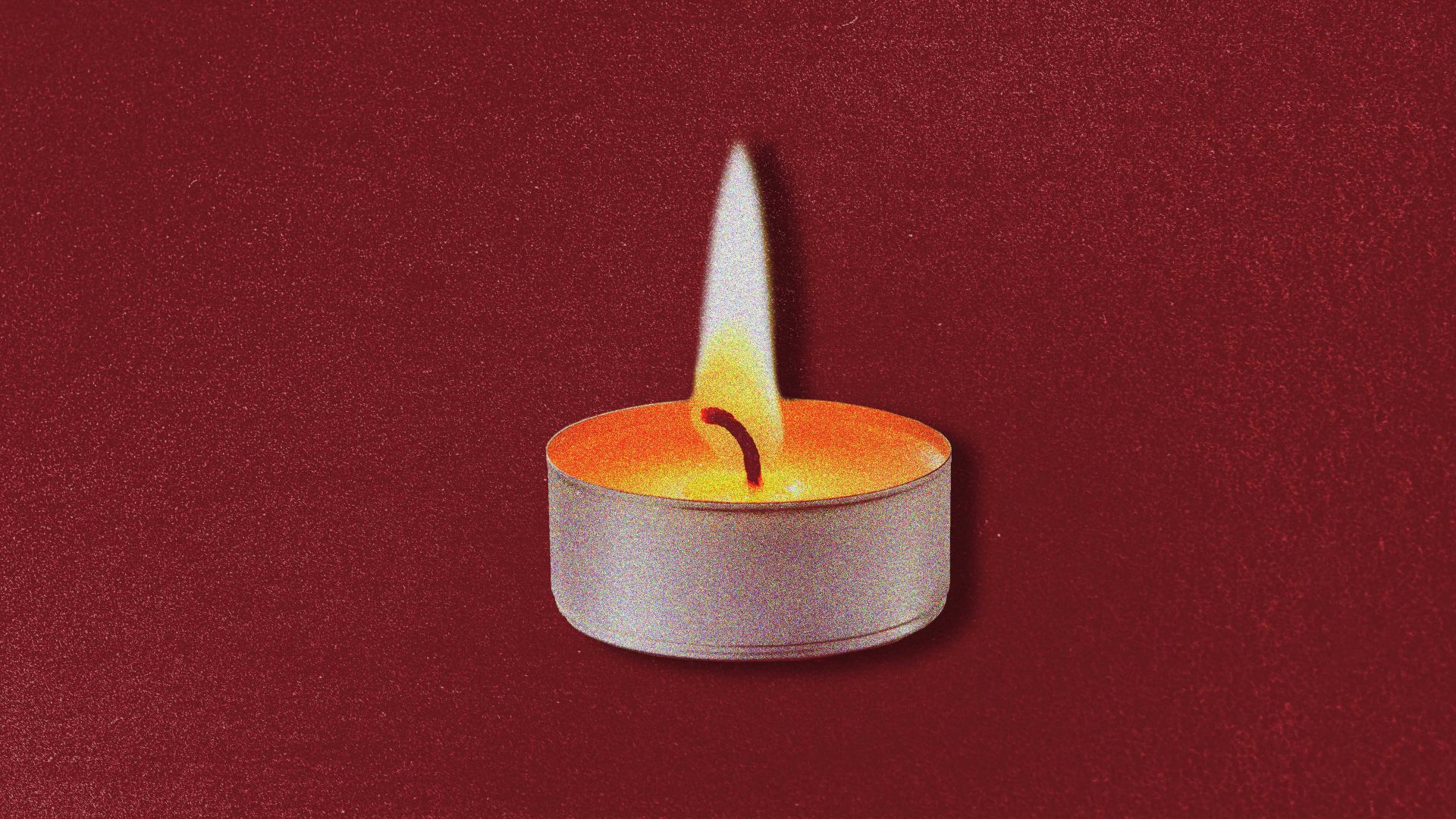The woman with the two large Styrofoam cups stood looking bewildered for a moment, until one of the other people in the lift grasped the problem and asked her: “Which floor?” While a second belatedly offered up the sort of fatuity that all too often passes for comity: “Got your hands full, haven’t you?”
The latter was too much for the woman – she began her explanation with a degree of normality: “Yes, they gave me a free coffee in Pret”, but then, realising, perhaps, the coincidence between the figure of speech and the inexpressible plenitude of her situation, she broke down.
“I-I’d had a sort of hysterical fit,” she continued. “You see, my husband is dying, and it’s horrible… it’s horrible… It’s…” she paused – and even in her abject distress managed this rhetorical flourish “…the worst thing in the world.”
We all rustled and murmured – there were maybe six of us, together in that brushed-aluminium box, being winched up inside a much larger steel-and-concrete one. Rustled and murmured in the subdued way the English do when confronted with egregious displays of public emotion; but to be fair – and as a lifelong assayer of such affects – this rustling and murmuring was a little more inspirited than usual.
It might’ve been because the box was inside was a hospital, or that the hospital was in polyglot central London, but I suspect it was also – paradoxically – precisely because the woman was white, middle-class and unimpeachably English, that for once this truth could be publicly acknowledged: death may not be the very worst thing in the world for everyone, but for secular people, with no belief in personal transcendence, it places the sort of minor inconveniences which, for the most part, irradiate our mundane lives, in a savage sort of proportion.
I told the woman she was speaking the truth, with no caveat: she was sobbing, and absolutely needed us all to bear witness, which we did. I would’ve said more – she was looking at me the way people do nowadays, since I ceased depilating and began wearing robes – but I had the metaphorical get-out of surgical tape on both wrists (by reason of cannulas being in place for “blood work”), and the literal one of having reached my floor.
As I left, the already-grieving woman was providing a neat epilogue: “It’s the comfort of strangers” she said, and whether this was a reference to a 16-ounce Americano or the soupçon of succour we’d offered, I couldn’t’ve said. My French wife found the expression poignant – and would’ve more if she’d recalled its first speaker: Blanche DuBois, Tennessee Williams’s decrepit former belle in A Streetcar Named Desire; and still more if she’d remembered the context as well: the context: the delirious rape victim is being removed to a mental hospital, and the stranger is a doctor.
The English attitude to death and dying is an understandable hobbyhorse of my own at the moment – given it’s the only one I can ride – and I betray my prejudice by this statement alone: for surely, our ways of dying are as various as we are ourselves? After all, while I may lay down my life for you, you’re utterly unable to experience my demise – and that holds for the most metempsychotic of Tibetan Buddhist monks, quite as much as it does for the most autistic of occidental atheists.
That being said, there are manifestly folkways, and ways of folk, um, going away – and I admit, the English ones encourage in me a fierce ambivalence. On the one hand all seems the most odious of repression – repression figured by those steel-and-concrete boxes with brushed-aluminium boxes inside them, which so resemble air terminals. This might seem to make a spurious equivalence between going away and “going away”, but there’s a more felicitous one to be drawn, surely, between the highly advanced (I won’t say “cutting edge” for obvious reasons) technologies both airports and hospitals enshrine.
At Heathrow, if you follow the confusing signage through a maze of car parks and access roads, you can find a bizarre little Modernist church, dating from the late 1950s – while at the hospital where I receive most of my treatments, there’s a beautiful old chapel; as for the prayer room, it’s tucked away down a long corridor. In none of these locations have I ever seen a cleric of any description.
I suppose some people may be able to find comfort in the offer of psychotherapy that accompanies life-threatening illness in the NHS – but I suspect many will find the idea of improving their mental health in the context of this ultimate malaise worse than paradoxical.
So, yes: the comfort of strangers – but just remember: there are no strangers, only clinicians you haven’t met yet.



